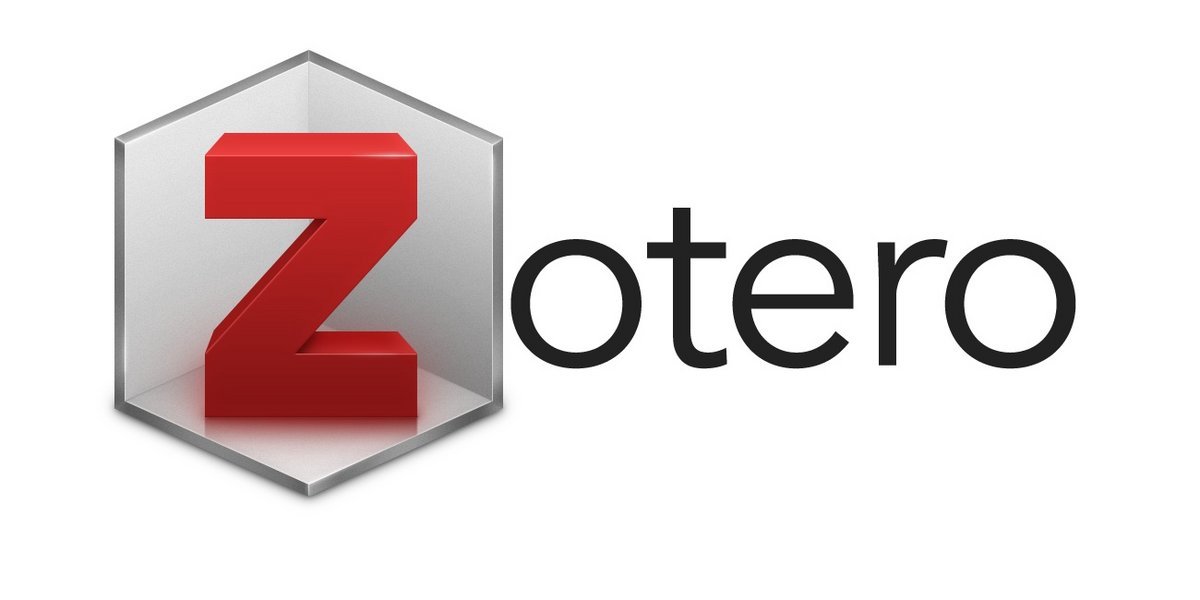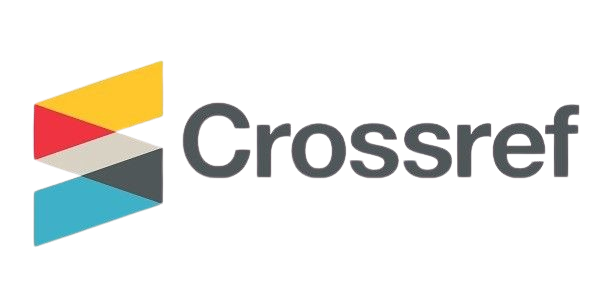Systematic Literature Review: Nilai-nilai Pendidikan dalam Kewirausahaan Islam
Systematic Literature Review: Educational Values in Islamic Entrepreneurship
DOI:
https://doi.org/10.70757/kharismatik.v2i2.115Keywords:
Ethical Business, Islamic Entrepreneurship, sustainability, Values Integration, Vocational EducationAbstract
This study addresses the rising unemployment rate among vocational graduates in Sukabumi, Indonesia, by exploring the integration of Islamic values into entrepreneurship education. The core issue lies in the mismatch between graduates’ skills and labor market needs, compounded by insufficient emphasis on ethical entrepreneurship in Islamic institutions. Through a systematic literature review, this research analyzes how Islamic principles honesty (sidq), trustworthiness (amanah), justice (‘adl), and excellence (ihsan) can create sustainable, ethical businesses. Data were extracted from Scopus, Google Scholar, and peer-reviewed journals (2014–2024) using keywords like "Islamic entrepreneurship" and "halal business." Results demonstrate that these values strengthen customer trust, operational transparency, and long-term business resilience while fostering socio-economic equity. The study concludes that embedding Islamic ethics into vocational curricula can cultivate entrepreneurial graduates who balance profit with social impact. Practical implications include policy recommendations for enhancing Islamic entrepreneurship programs and addressing ethical gaps in modern business practices. This research contributes to the discourse on faith-based entrepreneurship and offers a framework for aligning education with market demands.
References
Abras, A., & Al Mahameed, M. (2023). The rise and fall of institutional entrepreneurship in Islamic financial reporting standardisation projects. Accounting Forum, 47(3), 470–495. https://doi.org/10.1080/01559982.2022.2051684
Adib, H., & Intania, N. (2022). Analysis of Entrepreneurship Values in Islamic Education Learning and Morals at Al Alif Vocational High School. Edukasia : Jurnal Penelitian Pendidikan Islam, 17(1), 157. https://doi.org/10.21043/edukasia.v17i1.16118
Adib, H., Suriyah, S., & Siregar, S. F. (2023). Relevansi Nilai-Nilai Kewirausahaan Dalam Materi Pai Bp Sma Sederajat K13 Revisi 2020. In AL-USWAH: Jurnal Riset dan Kajian Pendidikan Agama Islam (Vol. 3, Issue 2). Universitas Islam Negeri Sultan Syarif Kasim Riau. https://doi.org/10.24014/au.v3i2.15098
Amin, M. M. (2024). Penguatan Nilai-Nilai Pendidikan Agama Islam Melalui Integrasi Mata Pelajaran Fikih dan Mata Pelajaran Prakarya dan Kewirausahaan (PKWU) di Sma Muhammadiyah Purwodadi. In Syntax Idea (Vol. 5, Issue 12, pp. 2517–2524). Ridwan Institute. https://doi.org/10.46799/syntax-idea.v5i12.2806
Andani, K. F. & Fadriati. (2023). Integrasi Nilai-Nilai Pendidikan Agama Islam Pada Mata Pelajaran Prakarya Kewirausahaan Dan Ekonomi Di SMAN 1 Sungayang. In Qalam: Jurnal Ilmu Kependidikan (Vol. 12, Issue 1, pp. 10–18). Lembaga Riset dan Inovasi, Universitas Muhammadiyah Sorong. https://doi.org/10.33506/jq.v12i1.2316
Ashraf, M. A. (2021). “Is Old Gold?” the Role of Prior Experience in Exploring the Determinants of Islamic Social Entrepreneurial Intentions: Evidence from Bangladesh. Journal of Social Entrepreneurship, 12(2), 265–290. https://doi.org/10.1080/19420676.2019.1702580
Asror, F. M., & Santosa, S. (2022). Entrepreneurship education in Islamic perspective. ATTARBIYAH: Journal of Islamic Culture and Education, 7(1), 63–79. https://doi.org/10.18326/attarbiyah.v7i1.63-79
Asutay, M., & Yilmaz, I. (2025). Financialisation of Islamic finance: A Polanyian approach on the hegemony of market logic over Islamic Logic. New Political Economy, 30(2), 267–286. https://doi.org/10.1080/13563467.2024.2424170
Brown, R. A. (2008). Islamic Endowments and the Land Economy in Singapore: The Genesis of an Ethical Capitalism, 1830–2007. South East Asia Research, 16(3), 343–403. https://doi.org/10.5367/000000008787133445
Elfakhani, S., & Ahmed, Z. U. (2013). Philosophical Basis of Entrepreneurship Principles Within an Islamic Ethical Framework. Journal of Transnational Management, 18(1), 52–78. https://doi.org/10.1080/15475778.2013.752780
Fitriani, Sri Deti, & Sri Sunantri. (2022). Etika Bisnis Islam Menurut Imam Al-Ghazali Dan Yusuf Al-Qaradhawi. CBJIS : Cross-Border Journal of Islamic Studies, 4(1), 50–68. https://doi.org/10.37567/cbjis.v4i1.1269
Jahja, A. S., Yudo, D. A., & Fauzan, F. (2023). Pendidikan Kewirausahaan di Indonesia: Perspektif Nilai-Nilai Islam. Perbanas Journal of Islamic Economics and Business, 3(1), 21. https://doi.org/10.56174/pjieb.v3i1.83
Khatimah, H., Nuradi, N., Haslam, D. S., Allifafitri, A., Fitriyani, F., & Abdel-Raouf, A. M. A.-H. (2024). Building Islamic Values In Entrepreneurship In The Perspective Of Al-Quran In Al-Baqarah: 198 And An-Nisa’: 29. ZAD Al-Mufassirin, 6(2), 225–247. https://doi.org/10.55759/zam.v6i2.242
Kriswahyudi, G. (2022). Membangun kewirausahaan dalam perspektif ekonomi Islam. Srikandi JournalofIslamicEconomicandBanking, 1(1), 57–66.
Madhar. (2024). INTEGRASI NILAI-NILAI MODERASI DALAM PENDIDIKAN ISLAM SEBAGAI UPAYA PENCEGAHAN RADIKALISME. In Al-Ibrah: Jurnal Pendidikan dan Keilmuan Islam (Vol. 9, Issue 2, pp. 43–64). Sekolah Tinggi Ilmu Tarbiyah Al-Ibrohimy Bangkalan. https://doi.org/10.61815/alibrah.v9i2.411
Madi, O. (2014). From Islamic Radicalism to Islamic Capitalism: The Promises and Predicaments of Turkish-Islamic Entrepreneurship in a Capitalist System (The Case of İGİAD). Middle Eastern Studies, 50(1), 144–161. https://doi.org/10.1080/00263206.2013.864280
Mujlipah, N., & Setiawan, D. (2024). Nilai-Nilai Moderasi Beragama Dalam Film Pendek Rukuh Dan Relevansinya Dengan Nilai Pendidikan Agama Islam. In Mozaic: Islam Nusantara (Vol. 10, Issue 2, pp. 99–114). Universitas Nahdlatul Ulama Indonesia. https://doi.org/10.47776/mozaic.v10i2.1097
Nurhayani, Muhammad Akbar, Damayanti, Rahmatullah, & Syarigawir. (2021). Kewirausahaan Ditengah Revolusi Industri 4.0: Teori Dan Konsep Tinjauan Ekonomi Islam. Jurnal Adz-Dzahab: Jurnal Ekonomi Dan Bisnis Islam, 6(1), 13–24. https://doi.org/10.47435/adz-dzahab.v6i1.586
Oktaviani, R., Hikmah, N., Wulandari, S., & Ramadina, M. (2024). Pengaruh Pendidikan Kewirausahaan Dan Dukungan Akademik Dalam Menanamkan Nilai Nilai Entrepreneurship Terhadap Minat Kewirausahaan Mahasiswa Pendidikan Ekonomi 2021. In Journal of Economic Education (Vol. 2, Issue 2, pp. 61–68). Lembaga Penelitian dan Pengabdian masyarakat Universitas Jambi. https://doi.org/10.22437/jeec.v2i2.22648
Ramdani, A. (2024). Internalisasi Nilai Kemandirian Melalui Pendidikan Kewirausahaan. Al-Marifah | Journal Pendidikan Islam Anak Usia Dini, 4(2), 193–207. https://doi.org/10.70143/almarifah.v4i2.327
Rizal, S., & M, A. (2024). Implementasi Kurikulum Pendidikan Agama Islam (Pai)” Dalam Lingkup Metodologi Pembelajaran Nilai-Nilai Akhlak. In Kreatifitas Jurnal Ilmiah Pendidikan Islam (Vol. 13, Issue 2, pp. 205–223). STAI Diniyah Pekanbaru. https://doi.org/10.46781/kreatifitas.v13i2.1321
Rosadi, A., Hambali, A., & Suhartini, A. (2023). Konsep Tauhidullah sebagai Substansi Pendidikan Islam. In Ta’allum: Jurnal Pendidikan Islam (Vol. 11, Issue 2, pp. 371–399). IAIN Tulungagung. https://doi.org/10.21274/taalum.2023.11.2.371-399
Rowikarim, A. (2023). PERAN GURU PENDIDIKAN AGAMA ISLAM DALAM MENUMBUHKAN NILAI-NILAI KARAKTER PESERTA DIDIK MELALUI PROGRAM PEMBIASAAN SHALAT SUNNAH DHUHA DI SMP ISTIQOMAH. In HASBUNA : Jurnal Pendidikan Islam (Vol. 2, Issue 1, pp. 130–146). Institut Agama Islam Tasikmalaya. https://doi.org/10.70143/hasbuna.v2i1.142
Ruswandi, Y. (2024). Internalisasi Lima Nilai Karakter Budaya Sunda dalam Pendidikan Kewirausahaan. Kaipi: Kumpulan Artikel Ilmiah Pendidikan Islam, 2(1), 24–33. https://doi.org/10.62070/kaipi.v2i1.54
Salamudin, C., & Ibrahim, R. (2023). Nilai-Nilai Pendidikan Antikorupsi Dalam Buku Ajar Pendidikan Agama Islam Dan Budi Pekerti Kurikulum 2013 SMA Kelas XII. In Masagi (Vol. 2, Issue 1, pp. 77–82). Sekolah Tinggi Agama Islam Al-Musaddadiyah Garut. https://doi.org/10.37968/masagi.v2i1.380
Santi, M. (2014). Prinsip Jujur Dalam Perdagangan (Tips Manjur Menuju Hidup Makmur). EKSYAR: Jurnal Ekonomi Syari’ah, 1(2), 150–166.
Sen, A. (2022). Articulations of Islamic nationalism in the educational reform discourse of ‘new Turkey.’ Discourse: Studies in the Cultural Politics of Education, 43(2), 205–216. https://doi.org/10.1080/01596306.2020.1817859
Sulaiman, H., & Mutaqin, F. (2024). Nilai-Nilai Pendidikan Multikultural Menurut Al-Qur’an Surah Al-Hujurat Ayat 11 Dan 12 Kajian Ilmu Pendidikan Islam. In Masagi (Vol. 3, Issue 1, pp. 48–59). Sekolah Tinggi Agama Islam Al-Musaddadiyah Garut. https://doi.org/10.37968/masagi.v3i1.673
Sulistyowati, R., Maula, F. I., Mahendra, A. M., & Fahrullah, A. (2024). Ecosystems and entrepreneurial intention among students: The mediating role of Islamic values. Perspectives of Science and Education, 69(3), 113–129. https://doi.org/10.32744/pse.2024.3.7
Suryanto, L., & Khoir, M. A. (2023). Implementasi pembelajaran fiqih muamalah dalam penguatan nilai pendidikan kewirausahaan di Pondok Pesantren Al-Islam Darul Falah Sragen. In At Turots: Jurnal Pendidikan Islam (pp. 497–505). Sekolah Tinggi Ilmu Tarbiyah Madani Yogyakarta. https://doi.org/10.51468/jpi.v5i1.189
Wardani, C. Y. (2024). Peran Business Center Dan Rumah Kewirausahaan Dalam Mentransformasi Nilai-Nilai Kewirausahaan Pada Peserta Didik SMK. In Jurnal Ekonomi, Bisnis dan Pendidikan (Vol. 3, Issue 6, pp. 2–2). State University of Malang (UM). https://doi.org/10.17977/um066v3i62023p2
Yaşar, A. (2020). Reform in Islamic Education and the AKP’s Pious Youth in Turkey. Religion & Education, 47(4), 106–120. https://doi.org/10.1080/15507394.2020.1828232
Yasser, R. (2024). Internalisasi Nilai-Nilai Karakter Masyarakat Islam Madinah Zaman Nabi SAW pada Lembaga Pendidikan Islam. In AL-QIYADI: JURNAL MANAJEMEN PENDIDIKAN ISLAM (Vol. 2, Issue 2, pp. 170–178). Sekolah Tinggi Ilmu Tarbiyah Fatahillah. https://doi.org/10.62274/al-qiyadi.v2i2.170
Downloads
Published
How to Cite
Issue
Section
Citation Check
License

This work is licensed under a Creative Commons Attribution-ShareAlike 4.0 International License.
Authors who publish articles in Kharismatik agree to the following terms:
- Authors retain copyright of the article and grant the journal right of first publication with the work simultaneously licensed under a CC-BY-SA or The Creative Commons Attribution–ShareAlike 4.0.
- Authors are able to enter into separate, additional contractual arrangements for the non-exclusive distribution of the journal's published version of the work (e.g., post it to an institutional repository or publish it in a book), with an acknowledgment of its initial publication in this journal.
- Authors are permitted and encouraged to post their work online (e.g., in institutional repositories or on their website) prior to and during the submission process, as it can lead to productive exchanges, as well as earlier and greater citation of published work (See The Effect of Open Access).













